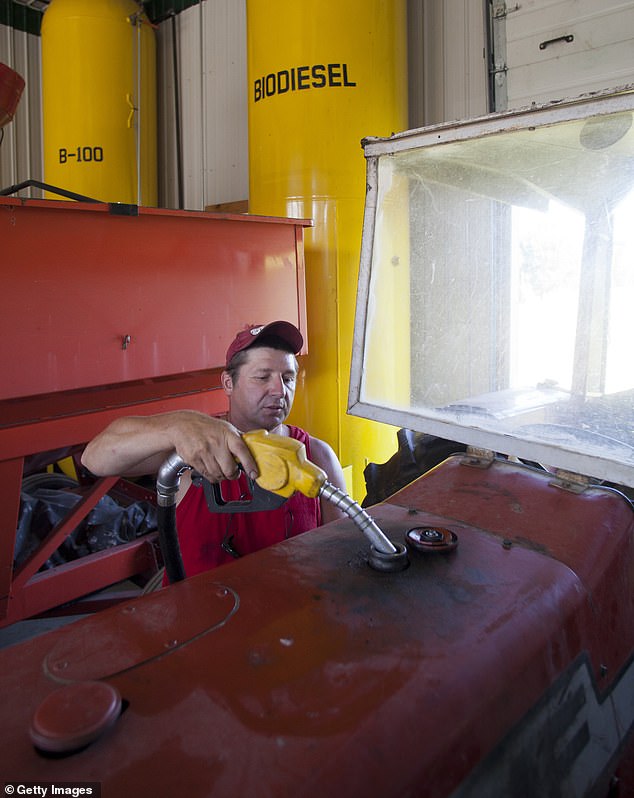The Biden administration’s European-style climate policy will raise costs for American farmers and cause families to spend $1,300 more each year on more expensive food, a new report warns.
Researchers at the Buckeye Institute, an Ohio-based free-market think tank, say the costs of diesel, propane and fertilizer will rise thanks to the federal government’s climate actions.
Farmers will pass these costs on to consumers, meaning cheese, beef and other everyday staples will cost up to 80 percent more, increasing the annual grocery spending of a family of four by $1,300.
“Federal authorities are pursuing costly climate and emissions control policies that have largely failed in Europe,” said report co-authors Trevor Lewis and M. Ankith Reddy.
Some farmers, like John Williamson in North Bennington, Vermont, have turned to biofuels to reduce emissions.
“American farms and households will have to pay for them.”
Climate activists say agriculture takes a toll on the environment, thanks to pesticides and fertilizers, the release of methane by livestock and other planet-warming gases from tractors, trucks and combines.

Researcher Trevor Lewis says grocery prices will rise
Farmers need to help reduce emissions, they say, or they will see their land ravaged by droughts, fires, floods and other extreme weather events that are becoming more common as the planet warms.
However, in their 49-page report, the researchers outline the disadvantages of forcing farmers to go organic.
They point to President Joe Biden’s Inflation Reduction Act, the Paris Climate Accords, and a trend of investing in companies to promote socially conscious environmental, social, and governance (ESG) standards, known as ‘woke capitalism.’
This increases costs for farmers, says the report, titled Net-Zero Climate Control Policies Will Fail the Farm.
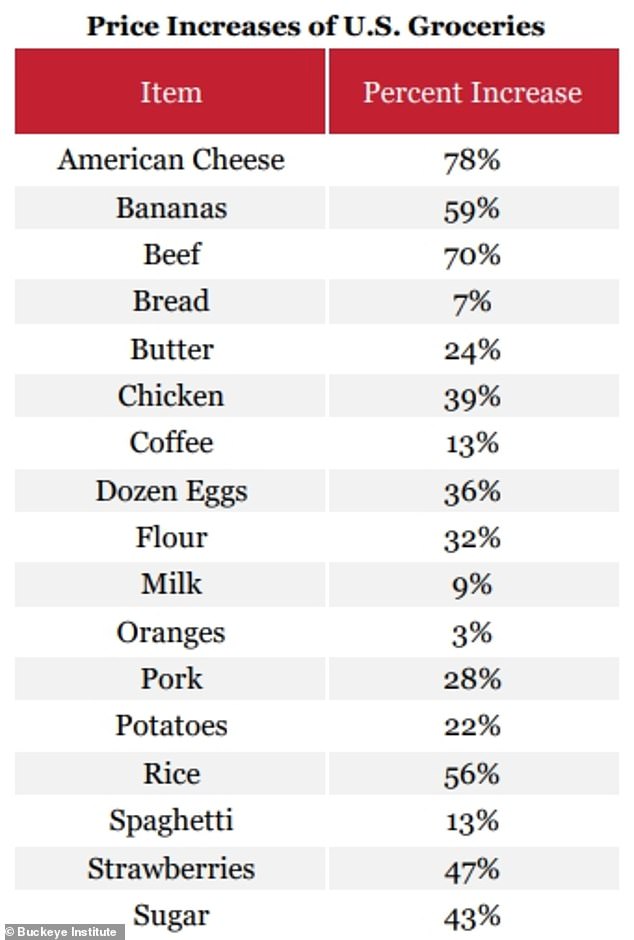
Farmers will pass costs on to consumers and prices at grocery stores will rise by up to 78 percent, researchers warn.
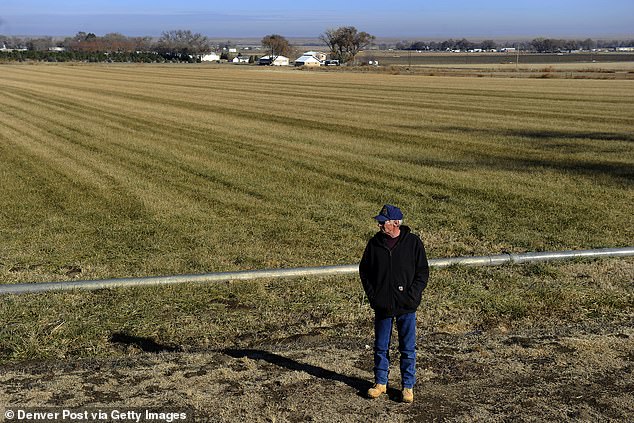
Tim Crow in Rocky Ford, Colorado, is one of many farmers who have been affected by water conservation.
To illustrate this, they created a model of a hypothetical corn farm that had to comply with new federal environmental regulations and standards.

Researcher M Ankith Reddy says US farmers will be affected
Climate control policies raised the costs of nitrogen fertilizers, diesel and propane (on which farmers depend) by 34 percent overall.
“Oil and gas producers, chemical companies, and American farms will likely bear the greatest compliance burden,” the researchers wrote.
“But they will inevitably share the cost with American consumers as government-induced high fuel, fertilizer and food prices spread across the economic pond.”
The model showed that farmers had to pass these prices on to consumers.
They estimated that American cheese would cost a staggering 78 percent more, thanks to climate-fighting rules.
Other pantry staples that will be affected include beef (up 70 percent), rice (56 percent), chicken (39 percent) and eggs (36 percent).
A typical family of four would have to spend an extra $1,300 a year to put food on the table, according to the 49-page report.
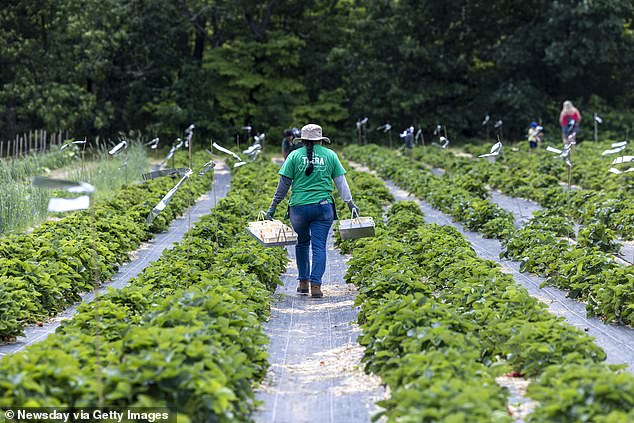
Thera Farms in Brentwood, New York, operates under a sustainable model, with leased organic farms, a native prairie, beekeepers, and a solar panel system.
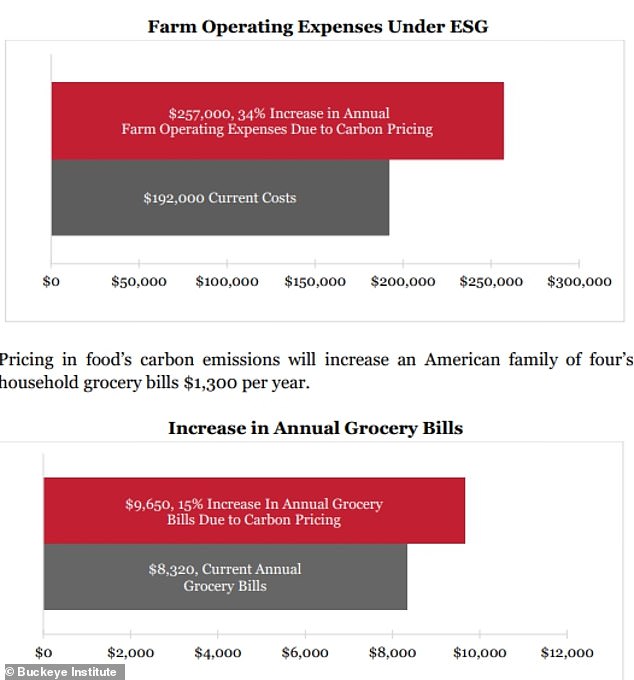
Costs for farmers will increase by 34 percent, meaning families will have to spend $1,300 more each year on food, the report warns.
Those increases would add to the double-digit inflation that Americans have struggled with in recent years.
“Misguided climate control policies can and should be resisted at all levels,” the researchers concluded.
Republicans have expressed support for the investigation.
Texas Agriculture Commissioner Sid Miller said it “confirms our biggest fears about ESG investing.”
“Imposing costly ESG requirements on America’s farmers and ranchers will have a devastating impact on American agriculture and global food security.”
Miller was one of a dozen Republican state agriculture chiefs who wrote last month to major financial institutions about how their ESG commitments would hurt farmers.
Recipients included senior executives from Bank of America, Citigroup, Goldman Sachs, JPMorgan Chase, Morgan Stanley and Wells Fargo, all members of the Net-Zero Climate Banking Alliance.

The “climate cult and ESG elites are causing costs to skyrocket,” says Will Hild, director of Consumers’ Research, a nonprofit organization.
Will Hild, director of Consumers’ Research, a nonprofit policy organization, said the report shows how “climate worship and ESG elites are causing costs to skyrocket.”
“The livelihoods of America’s farmers and ranchers should not be at risk due to inflated operating costs or loss of access to capital from woke banks,” Hild said.
“The American people should also not be victims of a crushing tax imposed on their food by climate extremists.”
Still, climate activists argue that change is necessary to prevent global warming.
“The effects of livestock farming on the environment and climate are enormous,” members of the California-based Ocean Preservation Society posted this week on X/Twitter.
“It is one of the main causes of deforestation, is responsible for a significant loss of biodiversity and pollution, and emits large quantities of greenhouse gases, particularly methane.”

